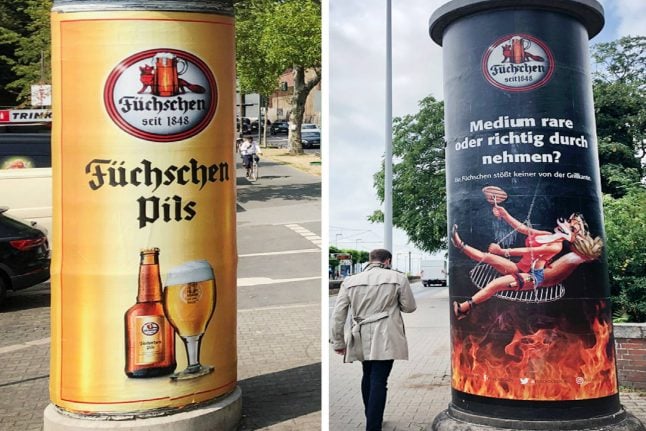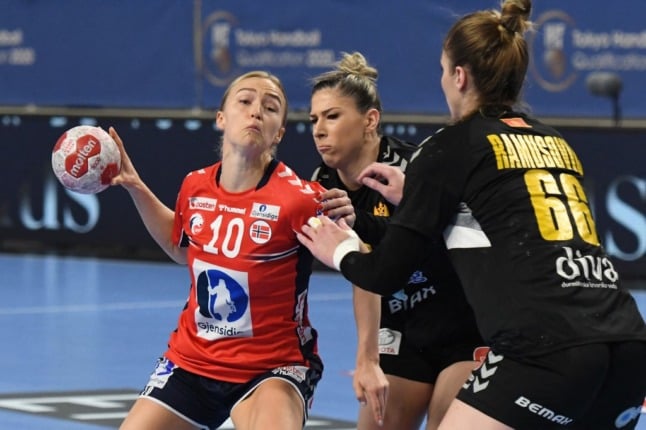In the ad from the brewery Im Füchschen, a curvy woman with a fox face suggestively sits atop a grill and holds up a steak.
“Medium rare or richtig durch nehmen?” it asks, a sexualized play on words that roughly translates to “Have it medium rare or go for raw?”
Posters for the brewery had been plastered around the city for several weeks until the Equal Opportunities Office in Düsseldorf's City Hall launched a complaint.
Then the Equal Opportunities Committee of the State Parliament followed suit, and all 14 female members signed a protest letter to voice their complaints.
“The use of a female fox as a pure sex object is obvious,” it stated.
The initiator of the letter, Free Democratic (FDP) politician Susanne Schneider, told RP Online that “This advertisement was clearly too much for me.” She added that such ads downplay the many victims of sexual violence.
After receiving several complaints, the Advertising Council then intervened, asking the brewery to take down the ad.
“The Advertising Council has definitely seen that the fox figures and cheeky slogans belong to the brewery's usual communication,” says the spokeswoman. “Here, however, the border to humorous advertising had been crossed. A motif of degraded women as sexual objects is clearly sexist.”
The advertising agency that designed the poster partnered with the brewery to create another ad in response reading: “Today politically correct. Füchschen: Equal rights for all.”
The play on words inserts an (i) into the German word for equality (Gleichberechtigung) so that the syllable ber becomes bier (beer).
Still, while company head Peter König was quick to remove the original ad, the advertisement could still be seen on other social media channels of the company.
It is not the first time recently that German advertising has been criticized for unappropriate or sexualized undertones.
Several politicians also launched a complaint in March against an ad by the Transport ministry, in which several sparsely clad women – wearing only underwear and bike helmets – huddle around men. “Looks like shit, but it saves my life,” states the poster.
READ ALSO: Cycling safety ad sparks sexism outcry in Germany
The ads, which were deemed effective for their target audience of younger commuters, stayed in circulation for a few weeks.
Advertising in Germany is regulated by law. “The state provides a framework for fair competition and ensures that advertising freedom is not used to the detriment of the public interest,” states the Advertising Council.
Ads can be banned, for example, “mislead, constitute a nuisance or are harmful to minors.”
Vocabulary
Advertising council – (das) Werberat
Advertisement – (die) Werbung
State Parliament – (das) Landtag
Protest letter – (der) Protestbrief
We're aiming to help our readers improve their German by translating vocabulary from some of our news stories. Did you find this article useful? Do you have any suggestions? Let us know.



 Please whitelist us to continue reading.
Please whitelist us to continue reading.
sometimes a smile and NOT buying a product has greater impact on companies